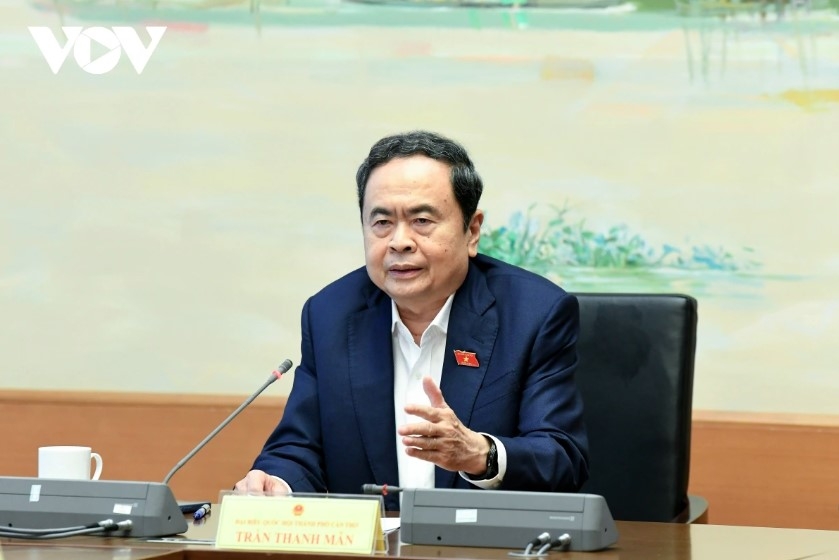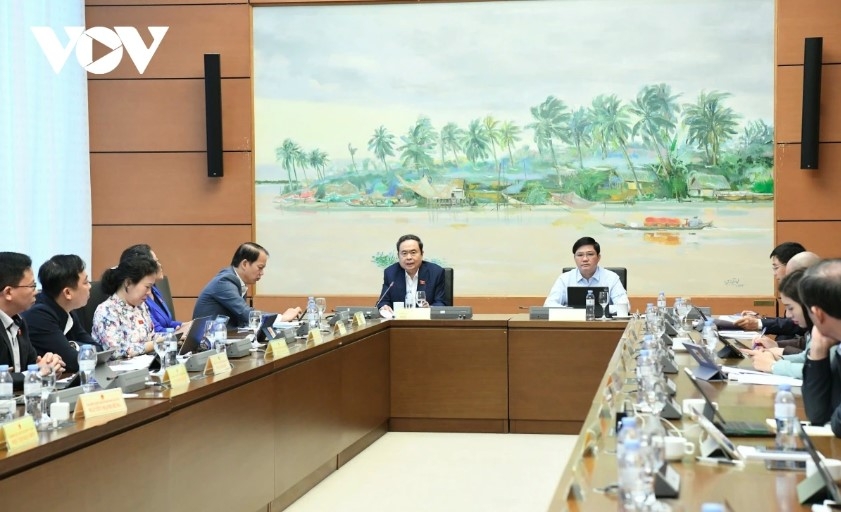Revision to Law on Public Debt Management aims to build investor confidence in Vietnam
VOV.VN - A thorough review is needed to facilitate the management of public debt, enable national development, and build investor confidence in Vietnam, National Assembly (NA) Chairman Tran Thanh Man said at a discussion session on amendments and supplements to a number of articles of the Law on Public Debt Manage held on November 13 in Hanoi as part of the 10th session of the 15th NA.
The top legislator said the law is being revised under a fast-track procedure during the 10th session to ensure consistent decentralization and delegation of authority with the Law on State Budget and the Law on Public Investment, accelerate administrative reforms, and expedite the implementation of foreign-funded projects. This is particularly important in the context of the two-tier administrative system, aiming to enhance transparency, openness, proactivity, and efficiency in public debt management.
The draft law amends 17 out of 63 articles, removes several provisions in five articles, and adds new regulations to another five. In principle, the verifying agency agrees with many contents of the draft, including the classification and management principles of public debt, and provisions that delegate and decentralize authority to the Prime Minister and the Ministry of Finance in certain debt management tasks, while enhancing the autonomy and accountability of administrations in budget decision-making and use.
Commenting on provisions related to the allocation and use of ODA and foreign concessional loans, the draft law adds a regulation authorizing the Government to specify cases in which funding may be granted to provincial People’s Committees and public service units. The NA Chairman requested that, during implementation, the Government must set out strict conditions and ratios for such grants and assess their impact on the central budget.
He noted that localities may seek to borrow larger amounts from foreign sources, while the debt obligations would remain concentrated on the central budget. Therefore, it is necessary to strengthen monitoring mechanisms and sanctions to ensure strict management and efficient use of allocated loan funds at the local level.
Regarding the mechanism for on-lending ODA funds, the draft law should include provisions allowing commercial banks to re-lend to public service units under the model of a lending agency that bears no credit risk. For enterprises investing in projects on the State’s priority investment list, the re-lending agency would assume part of the credit risk. The NA Chairman demanded a thorough assessment of the potential impacts of this proposal.

“The case of on-lending without assuming credit risk may lead to laxity in vetting borrowers, concentrating substantial risk on the State agency responsible. This is a reality we have already witnessed. Lending that is not tied to effectiveness, with commercial banks failing to monitor the loans properly, could affect debt repayment capacity and public debt safety. The greatest concern is borrowing funds that end up being invested elsewhere. Moreover, banks lack clear guidance on inspection and supervision procedures. I propose clarifying how commercial banks’ responsibilities are defined in the event of loan repayment failure,” the NA leader emphasized.
Regarding the issuance of government guarantees, the draft law proposes revising the conditions for granting such guarantees so that the Ministry of Finance would not conduct its own financial appraisal but rely solely on assessments from certain credit institutions.
The N Chairman noted that this process does not clearly reflect the responsibilities of the guaranteeing agency. He recommended clarifying the procedure, avoiding the creation of unnecessary intermediary layers that increase administrative steps, and explicitly defining the responsibilities and obligations of the credit institutions in assessing financial plans.
Regarding the borrowing and debt repayment by local administrations, the draft law stipulates that for the issuance of local government bonds on the domestic capital market, the provincial People’s Committees shall prepare a bond issuance plan and submit it to the provincial People’s Councils for approval, as stated in Article 55.
This decentralization aims to increase local autonomy, reduce administrative procedures, shorten issuance timelines, and facilitate faster capital mobilization for local projects.
However, the top legislator emphasized that granting full authority to the provincial People’s Councils to approve local government bond issuance must be carried out within the total borrowing limit approved by the National Assembly to ensure public debt safety.
He asked the Ministry of Finance and the National Assembly’s Committee on Economic and Financial Affairs to conduct a thorough review to facilitate effective public debt management, promote national development, and build confidence among both investors in Vietnam and the general public.




